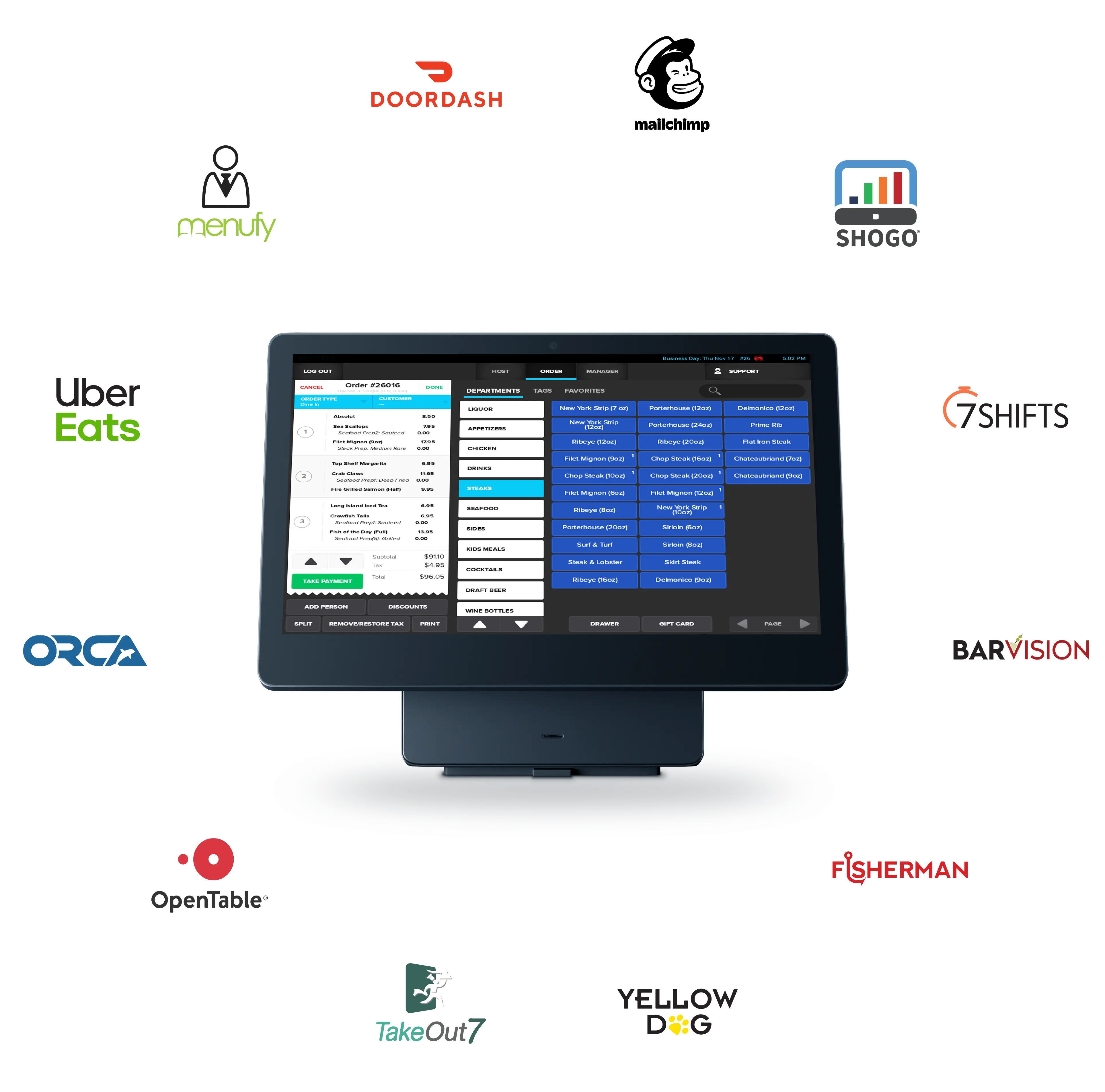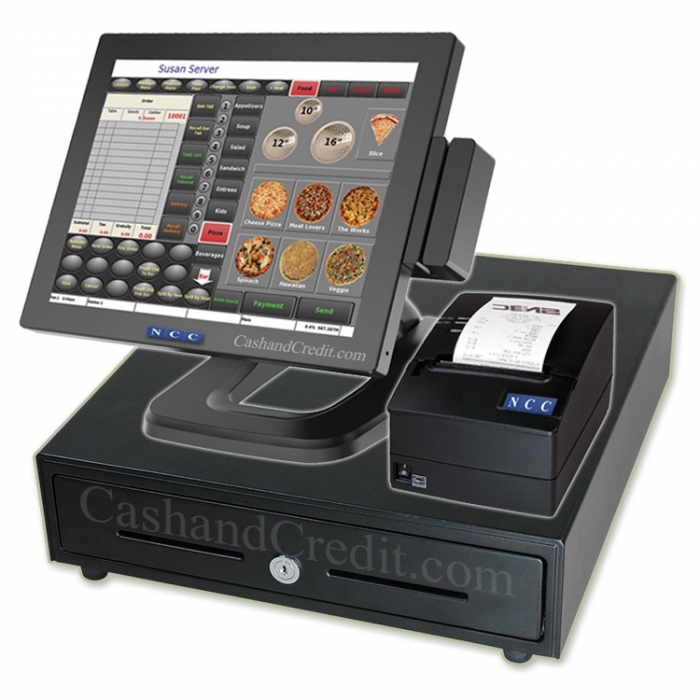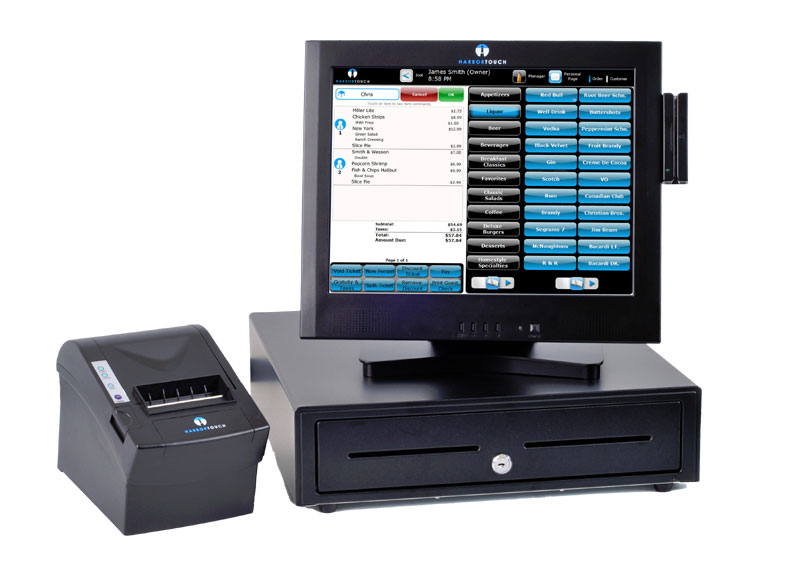Understanding the Relevance of POS Software in Modern Retail Procedures
In today's retail landscape, the duty of POS software has actually ended up being significantly substantial. These systems have changed from fundamental sales register to complex devices that boost various elements of procedures. They not only improve deals yet also provide insights that can shape company methods. Comprehending how these systems effect consumer experience and stock monitoring is essential for any kind of seller seeking to continue to be affordable. The ramifications of these developments warrant more expedition.
The Development of POS Software: From Transaction Processing to Comprehensive Solutions

Enhancing Consumer Experience Through Advanced POS Includes

Streamlining Stock Monitoring With Integrated POS Systems
Integrated POS systems play a crucial role in streamlining supply management by automating processes that commonly called for considerable hand-operated initiative. These systems enable merchants to track stock degrees in real time, getting rid of disparities that commonly occur from hands-on supply matters. With attributes such as barcode scanning and automatic supply replenishment informs, organizations can maintain excellent stock levels without overstocking or stockouts.Furthermore, integrated POS systems facilitate precise forecasting by assessing historical sales information, enabling sellers to make enlightened acquiring choices. This anticipating ability helps services adjust to changing consumer needs and seasonal patterns a lot more effectively.Additionally, the centralization of supply information across numerous sales channels enhances presence, making it possible for merchants to manage their supply a lot more successfully. Inevitably, the integration of POS systems into inventory monitoring simplifies operations, minimizes human error, and adds to increased profitability.
Real-Time Sales Tracking and Coverage for Informed Decision-Making

Precise inventory monitoring lays the groundwork for effective sales tracking and coverage. Real-time sales tracking makes it possible for merchants to check sales efficiency as it happens, providing instant understandings right into customer getting patterns and trends. This capability permits companies to respond quickly to changes popular, optimizing supply levels and reducing overstock or stockouts.Moreover, incorporated POS systems promote the generation of comprehensive reports, highlighting essential metrics such as sales by classification, time periods, and individual items. Such coverage abilities equip retailers to make data-driven decisions, determining effective strategies and areas needing renovation.
The Role of POS Software in Consumer Partnership Management
POS software plays a necessary role in improving client connection administration by allowing stores to apply personalized advertising methods. By assessing customer data, businesses can tailor promos and interactions to meet individual preferences. Furthermore, these systems facilitate the growth of enhanced loyalty programs that encourage repeat organization and reinforce client interaction.
Personalized Advertising Techniques
As sellers significantly seek to enhance client commitment and engagement, customized marketing techniques have emerged as an important element of efficient client partnership administration. POS software plays a vital role in this process by accumulating and examining consumer data, enabling merchants to tailor advertising initiatives to individual choices and shopping actions. By leveraging understandings from purchase histories, stores can create targeted promos and personalized interactions that reverberate with consumers, fostering a deeper link. Furthermore, the combination of POS software with client partnership management systems permits seamless tracking of consumer interactions, ensuring that advertising techniques continue to be relevant and timely (Restaurant POS Software). This data-driven strategy not only improves consumer contentment but additionally drives sales and encourages repeat service, solidifying the store's market setting
Boosted Commitment Programs
Sellers are significantly recognizing the importance of commitment programs in fostering lasting consumer connections and enhancing total involvement. POS software plays an important role in the growth and management of these programs, enabling sellers to track customer acquisitions, preferences, and behaviors efficiently. By leveraging data analytics, businesses can produce customized incentives and rewards that reverberate with private consumers, thus increasing engagement in loyalty programs. Furthermore, POS systems make it possible for seamless assimilation with mobile apps and electronic systems, promoting simple access to benefits and promotions. This not only improves client satisfaction yet likewise drives repeat company. Eventually, POS software encourages stores to cultivate much deeper links with their customers, transforming occasional consumers right into devoted patrons via targeted and purposeful involvement methods.
Integrating POS Systems With E-Commerce Platforms for Omnichannel Success
To attain true omnichannel success, smooth assimilation in between point-of-sale (POS) systems and shopping platforms is vital. This integration allows stores to combine their stock monitoring, ensuring that item schedule is properly mirrored across both online and physical shops. Consumers take advantage of a natural purchasing experience, where they can easily switch over between channels without coming across discrepancies.Furthermore, integrated systems facilitate real-time information sharing, allowing businesses to assess consumer behavior and preferences much more effectively. This data-driven technique enables retailers to customize advertising strategies and optimize stock degrees, ultimately improving consumer contentment and driving sales.Additionally, the capacity to procedure transactions across platforms streamlines operations, reducing the threat of mistakes and enhancing general effectiveness. As merchants increasingly adopt omnichannel approaches, the combination of POS systems with ecommerce platforms remains a vital consider accomplishing sustainable growth and maintaining competitive advantage in the vibrant retail landscape.
Future Trends in POS Technology and Their Effect On Retail Workflow
As retail operations evolve, future trends in POS innovation are readied to reshape the landscape considerably. The rise of cloud-based remedies, advancements in mobile POS systems, and the benefits of AI assimilation are among the key growths expected to improve effectiveness and client experience. These developments promise to streamline processes and cultivate a more dynamic retail environment.
Cloud-Based Solutions Surge
With the boosting reliance on innovation, cloud-based POS solutions are changing retail operations by supplying boosted flexibility and scalability. These systems make it possible for stores to access real-time information from anywhere, promoting better decision-making and customer care. By leveraging cloud infrastructure, businesses can lower ahead of time expenses linked with software and hardware installations while guaranteeing smooth updates and maintenance. Additionally, cloud-based solutions support multi-location management, permitting merchants to integrate inventory and sales across various outlets effortlessly. This adaptability is important in today's fast-paced market, where customer choices shift swiftly. As even more retailers adopt these solutions, they can anticipate better functional effectiveness and a more receptive strategy to market needs, inevitably improving consumer contentment and loyalty.
Mobile POS Innovations
The evolution of retail technology proceeds to form go right here operations, particularly with the rise of mobile POS innovations. These systems allow merchants to process purchases anywhere within the shop, enhancing client interaction and enhancing check out processes. Mobile POS options boost inventory administration by enabling instant accessibility to supply degrees, assisting personnel help clients more successfully. On top of that, they assist in individualized shopping experiences through integrated customer data and commitment programs. As mobile phones come to be significantly innovative, merchants are embracing features such as contactless payments and digital invoices, in addition maximizing the purchasing trip. The shift towards mobile POS not only improves functional efficiency however also aligns with the growing consumer choice for convenience, guaranteeing that stores continue to be competitive in a quickly evolving market.
AI Combination Benefits
AI integration stands for a transformative jump in POS innovation, providing merchants a myriad of advantages that boost operational effectiveness and consumer experience. By leveraging artificial intelligence algorithms, merchants can examine purchasing patterns and optimize inventory management, lowering waste and stockouts. Furthermore, AI-powered analytics give tailored marketing suggestions, enabling targeted promos that increase consumer interaction and commitment. Chatbots and online assistants improve client service, enabling for quicker resolution of inquiries and improving the total purchasing experience. Predictive analytics can likewise anticipate demand patterns, enabling smarter staffing and resource appropriation. Ultimately, the combination of AI in POS systems encourages sellers to make data-driven decisions, cultivating a competitive side in an ever-evolving retail landscape.
Frequently Asked Questions
What Are the Prices Connected With Implementing POS Software?
The expenses connected with executing POS software can consist of my explanation software licensing fees, hardware costs, installation costs, training prices, and continuous upkeep. Each element adds to the general financial investment essential for a successful implementation.
How Can Little Retailers Benefit From POS Systems?
Little merchants can gain from POS systems through enhanced transaction performance, structured supply management, and boosted customer insights. These systems allow far better decision-making, inevitably causing raised sales and consumer complete satisfaction in competitive markets.
What Hardware Is Needed for a POS System?
A common POS system needs crucial equipment elements, including a touchscreen display, cash drawer, barcode scanner, invoice printer, and settlement terminal. These components work with each other to help with effective purchase processing and inventory monitoring for stores.

Can POS Software Be Personalized for Details Retail Needs?
POS software can without a doubt be customized to meet specific retail requirements. Restaurant POS Software. This flexibility enables services to tailor attributes, user try this website interfaces, and reporting tools, enhancing operational performance and supplying a much more tailored experience for both staff and consumers
Just How Safe Is Customer Data in POS Systems?
The protection of client data in POS systems varies commonly. Lots of systems apply encryption, protected accessibility controls, and regular updates, but vulnerabilities can still exist, necessitating recurring vigilance and positive measures from merchants to shield delicate info.